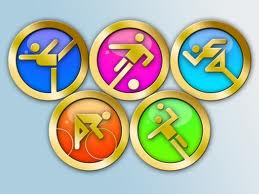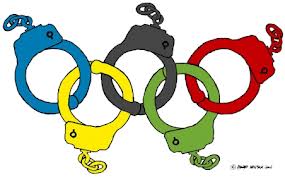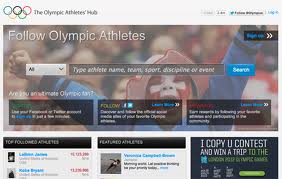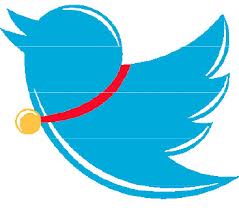 I don’t know about you, but I can’t get enough of the Olympics. It is a chance for me to see sports that I don’t normally have an opportunity to watch. For instance, have you seen handball?!!? That stuff is crazy!
I don’t know about you, but I can’t get enough of the Olympics. It is a chance for me to see sports that I don’t normally have an opportunity to watch. For instance, have you seen handball?!!? That stuff is crazy!
Sports watching aside, the London 2012 Games have been a little different from the Olympiads before them. They are the most “social” games that we’ve ever experienced. I thought today, since we are smack dab in the middle of The Games, we could take a look at how social media has made an impact and what non-profits can take away from it.
Censorship
 Last week, reporter Guy Adam’s Twitter account, was taken down. This was shocking to hear because Twitter has been social media’s liberation network. Twitter is supportive of free speech . . . just look at their public positions on WikiLeaks and the Arab Spring movement. When reporter Guy Adams tweeted criticism of NBC’s coverage of the Opening Ceremonies, Twitter responded by shutting down his account. After media coverage of this censorship, Adams’ account was reactivated.
Last week, reporter Guy Adam’s Twitter account, was taken down. This was shocking to hear because Twitter has been social media’s liberation network. Twitter is supportive of free speech . . . just look at their public positions on WikiLeaks and the Arab Spring movement. When reporter Guy Adams tweeted criticism of NBC’s coverage of the Opening Ceremonies, Twitter responded by shutting down his account. After media coverage of this censorship, Adams’ account was reactivated.
What can non-profits take away from this?
Just because social media is, in most cases, a free service and covered under the First Amendment, it doesn’t take away from the fact that Twitter, Facebook, et al, are still corporations. They can still regulate your account without your knowledge. As a result, I recommend that all non-profit organizations have their own websites and not solely rely on social media. After all, social media is only one tool that you should use to drive people to your website and share their message with the world.
Rants
 People will talk. There’s no doubt about that.
People will talk. There’s no doubt about that.
However, there are times when people are not only representations of themselves, but they are also representing an organization and something larger than just themselves. So, when USA Women’s Soccer Team member, Hope Solo, tweeted her disdain for the commentary that was being given during her games, her coaches and captains called her in for a meeting. She wasn’t suspended, but since the meeting, her tweets have had a different tone to them.
Similarly, athletes have been suspended from participating in the The Olympic Games due to racist tweets they published.
What is the lesson in all of this for non-profit organizations? The need for a social media policy is stronger than ever.
What is the lesson in all of this for non-profit professionals? Employees and volunteers need to understand what restrictions might exist when it comes to sharing things on their personal accounts as it pertains to your organization.
Finally, this all begs one simple question: “How does your organization know who is saying what about you online?”
I believe that someone at your organization should be assigned the responsibility of monitoring what (if anything) is being said about your organization on the internet. Please don’t misunderstand . . . I’m not suggesting that you break any privacy laws here, but if an employee has a public twitter account, it can be seen by anyone.
One way to set up something without being as much of a stalker is to set up a Google Alert to notify you when the name of your organization or a key word attached your mission is mentioned on the internet.
Share Your Successes
 The Olympics are all about results. Who ran the race the fastest? Which country has the most gold medals? Athletes, teams, and news networks constantly updating their feeds with success stories.
The Olympics are all about results. Who ran the race the fastest? Which country has the most gold medals? Athletes, teams, and news networks constantly updating their feeds with success stories.
People like good news. Non-profit organizations should share their successes, big or small, with their online communities.
Did you recently make a purchase that will improve the work that you do? Tell people about it. Were you recently awarded a grant that will make an impact on furthering your mission? Scream it from the mountaintops of cyberspace.
People will “like” the good news on Facebook and retweet the news on Twitter. This can gain you new followers and supporters.
We still have about a week left of Olympic coverage, and new stories regarding social media are bound to pop up. I encourage you to keep your eyes open and see what happens. After all, in its most basic form, The Olympics are simply one big special event that is runs by an organization. Non-profits run special events, too. What social media stories have caught your eye recently? I’d love to talk about them in the comment section below!


Twitter damaged itself with suspending the Independent journalist over his tweets about NBC Olympics coverage. This is the Olympics that highlights some of the best and the worst issues of social media.
Alex, you’re so right! The London 2012 games are being touted as the “first social games” and it has been interesting to see how athletes, organizers and social networks respond. Thanks for your comment and readership!